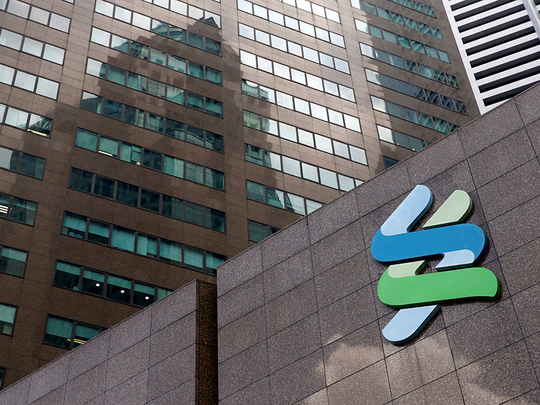
Dubai: Standard Chartered saw pre-tax profits rise to $4.2 billion for 2019, with the Middle East and Africa territory posting a 29 per cent increase in operating profit before taxation of $684 million.
The emerging markets-focused UK bank said pre-tax profit surged 8 per cent, but warned of growth challenges this year due to the coronavirus outbreak and economic challenges faced by key markets such as China, India and Hong Kong. In a statement attached to the results, Bill Winters, Group Chief Executive, said the bank faced low interest rates, a slowing global economy, the US-China trade war, and several months of pro-democracy protests in Hong Kong last year.
Along with the impact of the recent coronavirus outbreak, it will “likely result in income growth in 2020 below our medium-term 5-7 per cent target range,” Winters said.
Lower costs and impairments
The Middle East and Africa profit growth was supported by lower expenses and improved credit impairment, partially offset by a 2 per cent decrease in income to $2.56 billion. The North Africa and Pakistan income growth was flat, and Africa was down 3 per cent. Strong performances in financial markets and corporate finance were offset by margin compression in retail banking and lower wealth management income in the UAE.
Loans and advances to customers in the region were up 5 per cent, while customer accounts were down 2 per cent.
“For Africa and Middle East, we were well-positioned for growth moving into the year and this is clearly illustrated in our results,” said Sunil Kaushal, Regional CEO, Africa and Middle East. “Our strong performance demonstrates the transformation of the Africa and Middle East franchise despite a challenging macroeconomic backdrop across the region.”
The bank said renewed US-Iran tensions have raised the geopolitical stakes in Middle East North Africa and Pakistan with likely spillovers into the rest of this year. Opec+ cuts constitute a downside risk to oil exporters’ recovery in growth, while a sustained expansion in the non-oil economy will depend on fiscal support.
The bank expects Dubai’s hosting of Expo 2020 to provide a one-off boost by helping lift UAE’s non-oil growth to 3 per cent.








